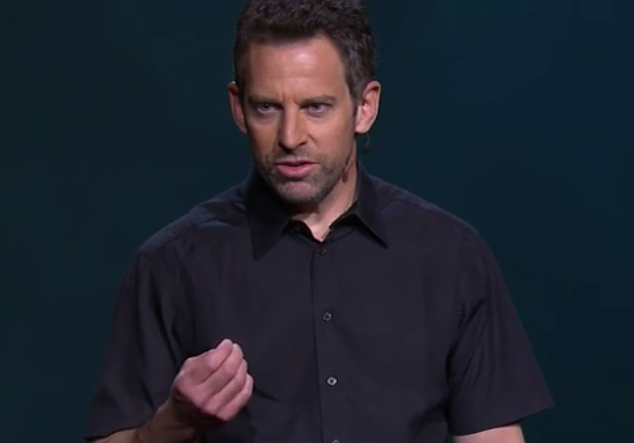It's as though we stand before two doors. Behind door number one, we stop making progress in building intelligent machines.
我們就像站在了兩扇門前。在第一扇門后面,我們停下打造智能機器的腳步。
Our computer hardware and software just stops getting better for some reason.
某些原因也使我們停止了對電腦軟件和硬件的升級。
Now take a moment to consider why this might happen.
現在讓我們想一下為什么會這樣。
I mean, given how valuable intelligence and automation are, we will continue to improve our technology if we are at all able to.
我的意思是,當我們認識到智能和自動化不可估量的價值時,我們總會竭盡所能的改善這些科技。
What could stop us from doing this? A full-scale nuclear war? A global pandemic? An asteroid impact?
那么,什么會使我們停下腳步呢?一場大規模的核戰爭?一次全球性的瘟疫?一個小行星撞擊了地球?
Justin Bieber becoming president of the United States?
或者是賈斯汀·比伯成為了美國總統?
The point is, something would have to destroy civilization as we know it.
重點是,總有一個事物會摧毀人類現有的文明。

You have to imagine how bad it would have to be to prevent us from making improvements in our technology permanently, generation after generation.
你需要思考這個災難究竟有多恐怖,才會永久性地阻止我們發展科技,永久性的。
Almost by definition, this is the worst thing that's ever happened in human history.
光想想它,就覺得這將是人類歷史上能發生的最慘絕人寰的事了。
So the only alternative, and this is what lies behind door number two,
那么,我們唯一剩下的選擇,就藏在第二扇門的后面,
is that we continue to improve our intelligent machines year after year after year.
那就是我們持續改進我們的智能機器,永不停歇。
At a certain point, we will build machines that are smarter than we are,
在將來的某一天,我們會造出比我們更聰明的機器,
and once we have machines that are smarter than we are, they will begin to improve themselves.
一旦我們有了比我們更聰明的機器,它們將進行自我改進。
And then we risk what the mathematician IJ Good called an "intelligence explosion," that the process could get away from us.
然后我們就會承擔著數學家IJ Good所說的“智能爆炸”的風險,(科技進步的)進程將不再受我們的控制。












